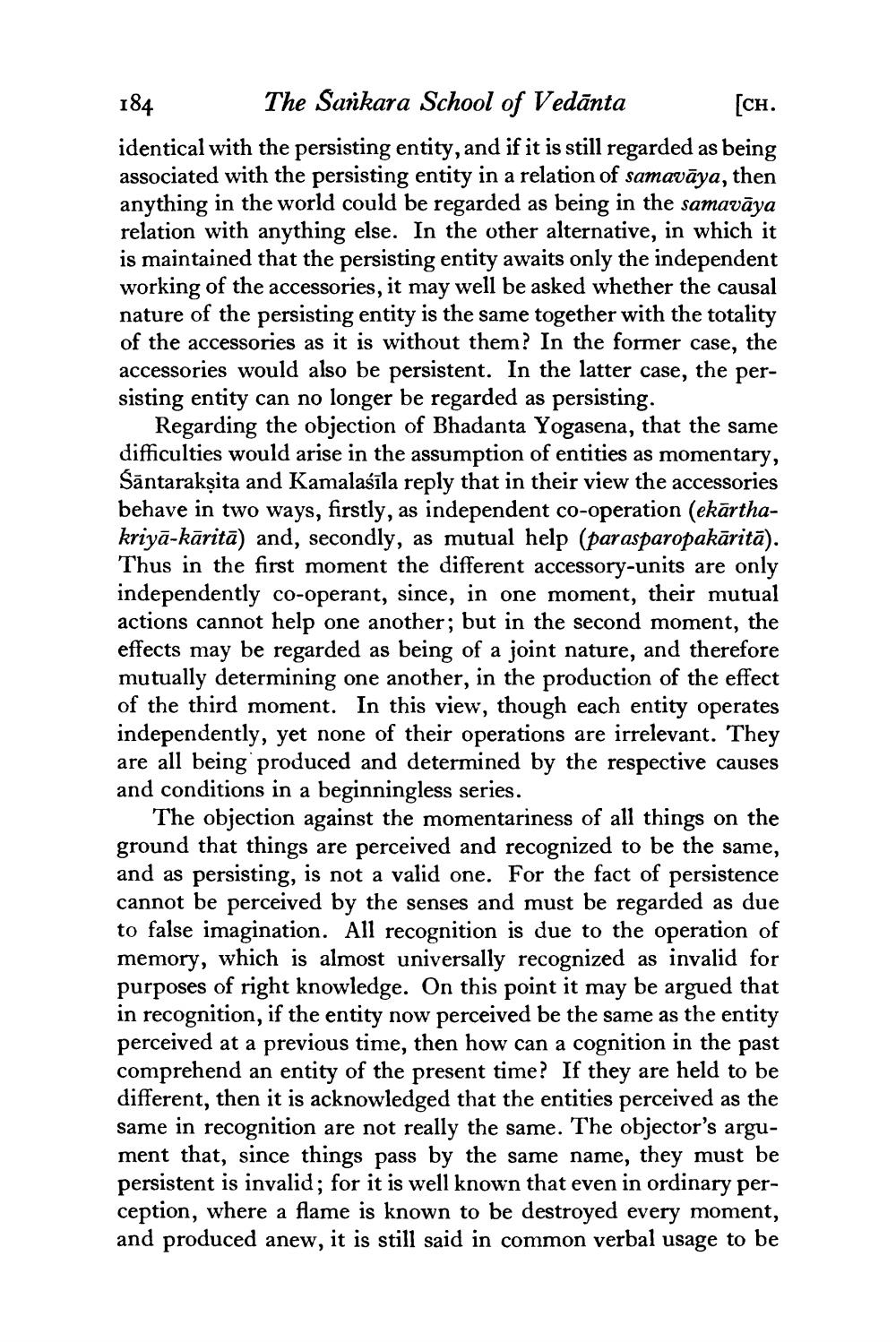________________
[CH.
184 The Sankara School of Vedānta identical with the persisting entity, and if it is still regarded as being associated with the persisting entity in a relation of samavāya, then anything in the world could be regarded as being in the samavāya relation with anything else. In the other alternative, in which it is maintained that the persisting entity awaits only the independent working of the accessories, it may well be asked whether the causal nature of the persisting entity is the same together with the totality of the accessories as it is without them? In the former case, the accessories would also be persistent. In the latter case, the persisting entity can no longer be regarded as persisting.
Regarding the objection of Bhadanta Yogasena, that the same difficulties would arise in the assumption of entities as momentary, Sāntarakṣita and Kamalaśīla reply that in their view the accessories behave in two ways, firstly, as independent co-operation (ekārthakriyā-kāritā) and, secondly, as mutual help (parasparopakāritā). Thus in the first moment the different accessory-units are only independently co-operant, since, in one moment, their mutual actions cannot help one another; but in the second moment, the effects may be regarded as being of a joint nature, and therefore mutually determining one another, in the production of the effect of the third moment. In this view, though each entity operates independently, yet none of their operations are irrelevant. They are all being produced and determined by the respective causes and conditions in a beginningless series.
The objection against the momentariness of all things on the ground that things are perceived and recognized to be the same, and as persisting, is not a valid one. For the fact of persistence cannot be perceived by the senses and must be regarded as due to false imagination. All recognition is due to the operation of memory, which is almost universally recognized as invalid for purposes of right knowledge. On this point it may be argued that in recognition, if the entity now perceived be the same as the entity perceived at a previous time, then how can a cognition in the past comprehend an entity of the present time? If they are held to be different, then it is acknowledged that the entities perceived as the same in recognition are not really the same. The objector's argument that, since things pass by the same name, they must be persistent is invalid; for it is well known that even in ordinary perception, where a fame is known to be destroyed every moment, and produced anew, it is still said in common verbal usage to be




